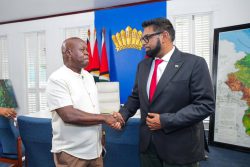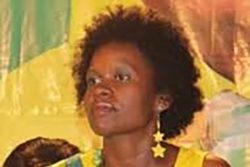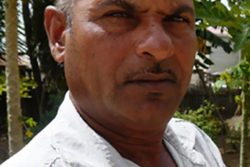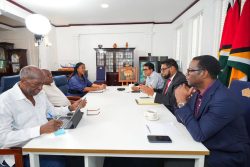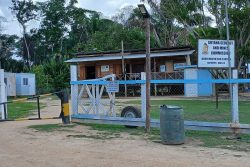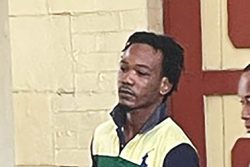Dear Editor,
A letter, “The significance of May in Guyana’s history is still unknown to many” (SN, June 2, 2024) by Dr. Gary Girdhari conjures up a familiar ring, one reminiscent of what we have consistently been encouraging for decades. I echoed similar sentiments at a recent book launch at Texila University. Girdhari, who must be credited with single-handedly producing the Guyana Journal out of Queens, NY, for many years, ought to know that Indian writers and leaders themselves were guilty perpetrators and purveyors of this historical abnormality, contributing to what Haitian Anthropologist Michel-Rolph Trouillot deemed as “silencing the past.”
It is partially accurate to lodge the blame for this historical anomaly at the bosom of “the deliberate policy during colonial times and the inherent skewed education syllabus.” But it is patently condescending, if not hypocritical, to submit that “Indo-Guyanese, benignly and shamefully do not know their history” without equally acknowledging the contributory role that individuals and contemporary organizations have played in silencing the history of Indians. By individuals, I am referring specifically to Indians, some of whom express discomfort when publicly addressing their Indianness in a plural, multicultural society.
In our contemporary world, Marxist ideology and Marxism-Leninism have coopted the political (and to some extent, the social and intellectual) space, by negating legitimate appreciation for ethnic and cultural sentiments, frowning upon such organizations and individuals. Expressing pride in one’s unique cultural and historical experiences was considered antithetical to the promise of the creation of a united working class. Indian leaders and intellectuals were busy advocating for universal causes, but ignored the reality of what was happening within their own communities.
The late UWI Professor Brinsley Samaroo, for instance, a pioneering giant in Indian history, departed briefly from academia when he became an elected member of the Trinidad House of Representatives. He was fully cognizant of the transgressions of the Desiré Delano Bouterse government in Suriname, rigged elections under the Burnham dictatorship and discrimination against Indians in his own country. Yet, there was no willingness on the part of some of our scholars, whose careers were built on the study of Indian history, to engage in a “Rodney moment” by “grounding” and empathizing with the people they were writing about.
Here in Guyana, those who have consistently supported a progressive Marxist/ Soviet radical agenda have contributed towards the silencing of Indian history, as well as the voices of those who were so inclined. Still, the handful of pretentious champions of Marxist ideology in Guyana continue to defend Marxist praxis, but conveniently avoid any discussions of its historical domestic consequences and impact on our society. It is remarkable that no singular independent national organization exists today that seeks to articulate and advance the interests of Indians, or that there is no museum (not even a virtual one!) dedicated to the preservation of artifacts from the historical past. To his credit, President Irfaan Ali expressed commitment to have the indentured records digitized, and he has impressed upon the visiting Gladstones the necessity of including indentureship in the growing calls for reparations. Preliminary studies, and anecdotal evidence suggest that three major problems facing the Indian community today – alcoholism, suicide and gendered violence – may have direct links to the historical indenture experience.
Girdhari has invoked a reference to the expulsion of Indians in Wismar by sharing a link to the report of the Commission of Inquiry, which was launched “to inquire into the recent disturbances which took place at Wismar, Christianburg and Mackenzie in the Demerara River, to investigate the conduct of the security forces during the said disturbances and to determine the number of deaths and the extent of injury, loss and damage suffered in the said disturbances, and to report thereon” (Seal #161/1964, Sep 28, 1964). The details contained in the COI pale in comparison to the lived experiences of the Wismar refugees still among us. Ironi-cally, independence (a date to which Cheddi Jagan objected) was organized and celebrated in Linden this year, with not even a passing reference to Wismar 1964. Who then bears the burden of this “shame”?
If our leaders were keen on educating Indians about their history, we might have known that during the 1924 Ruimveldt massacre, one of two Indian women killed (“Beeput” and “Jasodia”) was as a result of bullets emanating from the rapid-fire water-cooled British-invented Vickers machine gun which penetrated the wall of her house, piercing her body, killing her as she quietly nursed her infant child. That woman, one of the 13 individuals killed during the Ruimveldt massacre, was a relative of a Wismar “refugee” who was forced to flee her home, in pregnancy, as the rest of the family was under siege and their General Store in Christiansburg was set ablaze. Yet, a frequent Stabroek News blogger, Fuad Rahaman (March 31, 2022), echoing a similar narrative of Janet Jagan (a proud Jew, as she indicated in an interview with David Dabydeen), could audaciously write: “The tragic events that took place in Wismar in 1964…must be forgotten.” The history of Indians must continue to be silenced.
Undoubtedly, race relations, particularly among a younger generation of Guyanese, has evolved with its complex intricacies– perhaps in a positive way. It has slowly metamorphosed from its extreme binary nature due to the decay in historical memory, changing demographics, social integration, and fear of the societal costs imposed by inflamed primordial sentiments. Race relations may be less conflictual than it was, compared to the 1960s (though memory warriors like David Hinds, Henry Jeffrey, etc. seek to convince us otherwise). There is still hope of unsilencing a long tradition of the history of Indians, as well as the history of others, which will amplify celebration of our Guyanese cultural mosaic. Indians do not need to hold their breath until May 2025 to experience another intellectual epiphany of their history.
Sincerely,
Baytoram Ramharack
